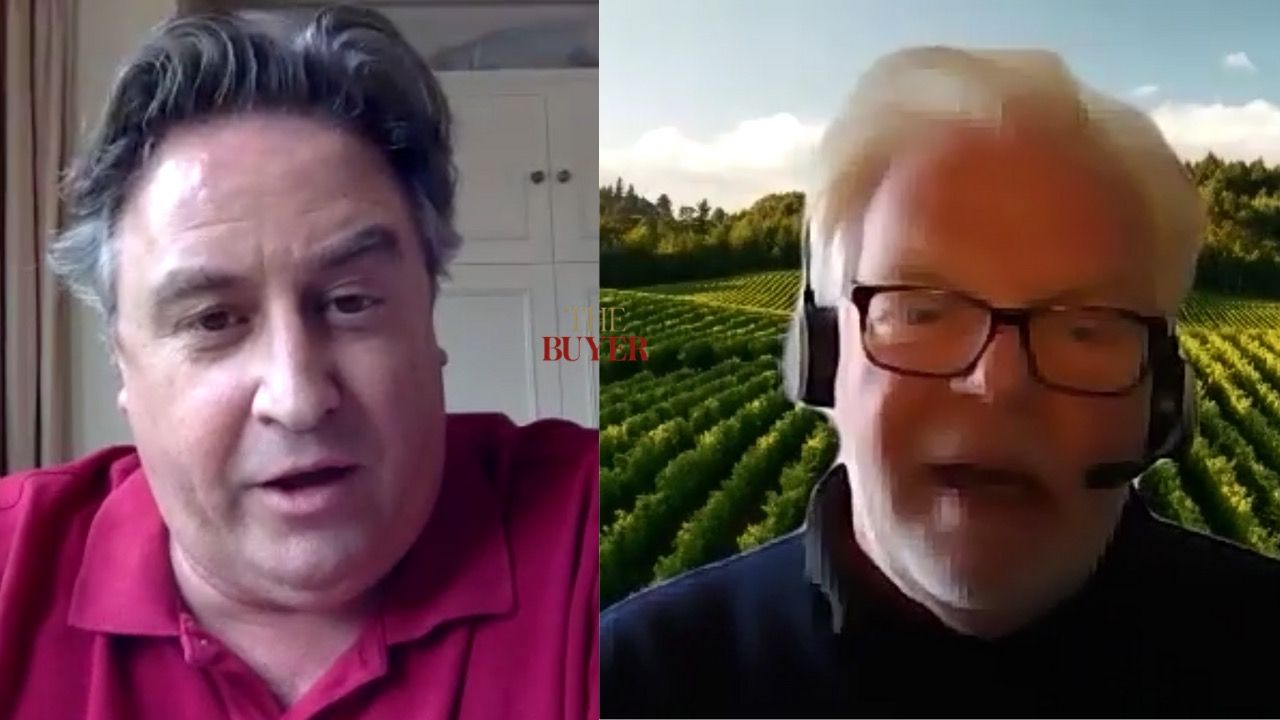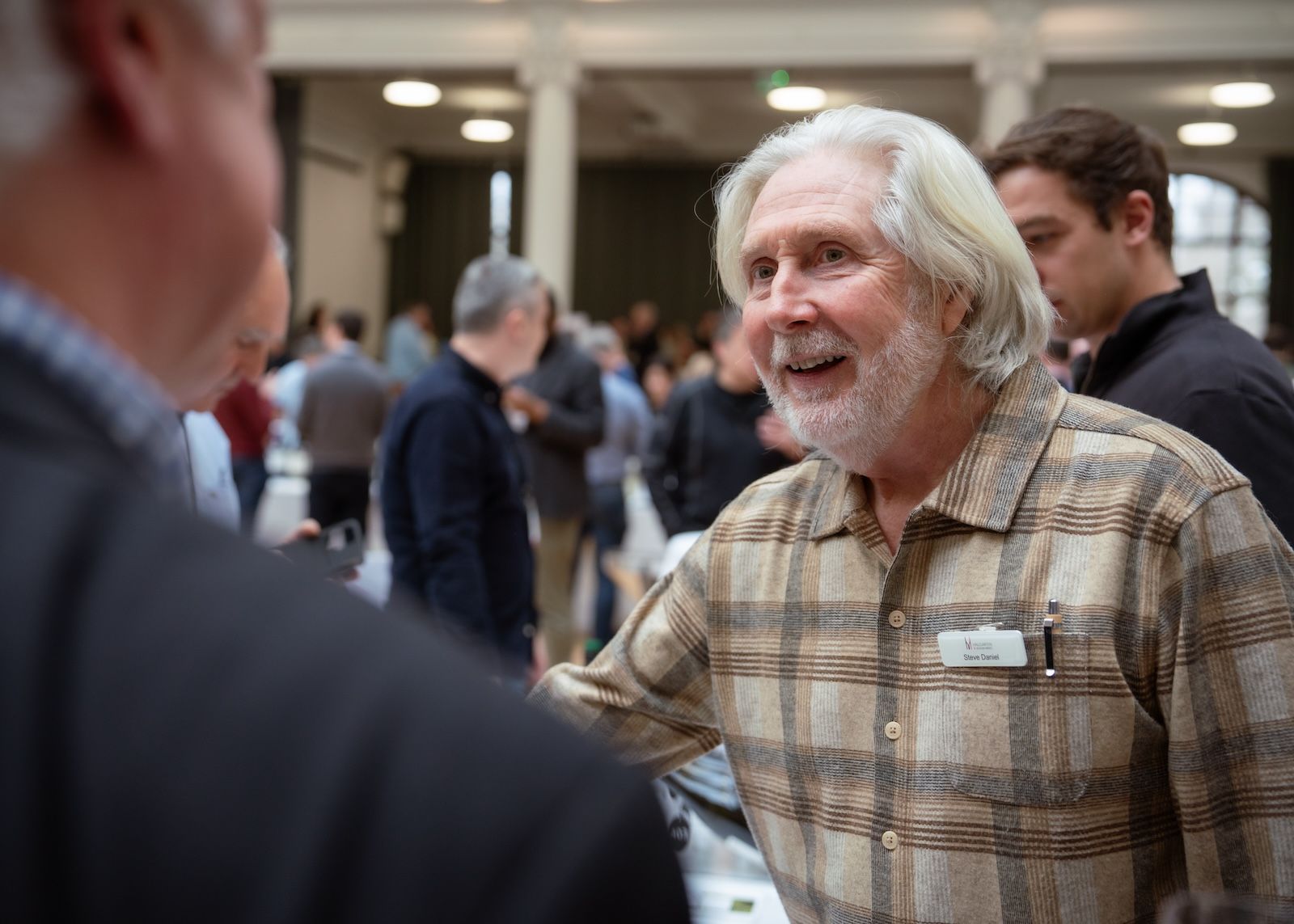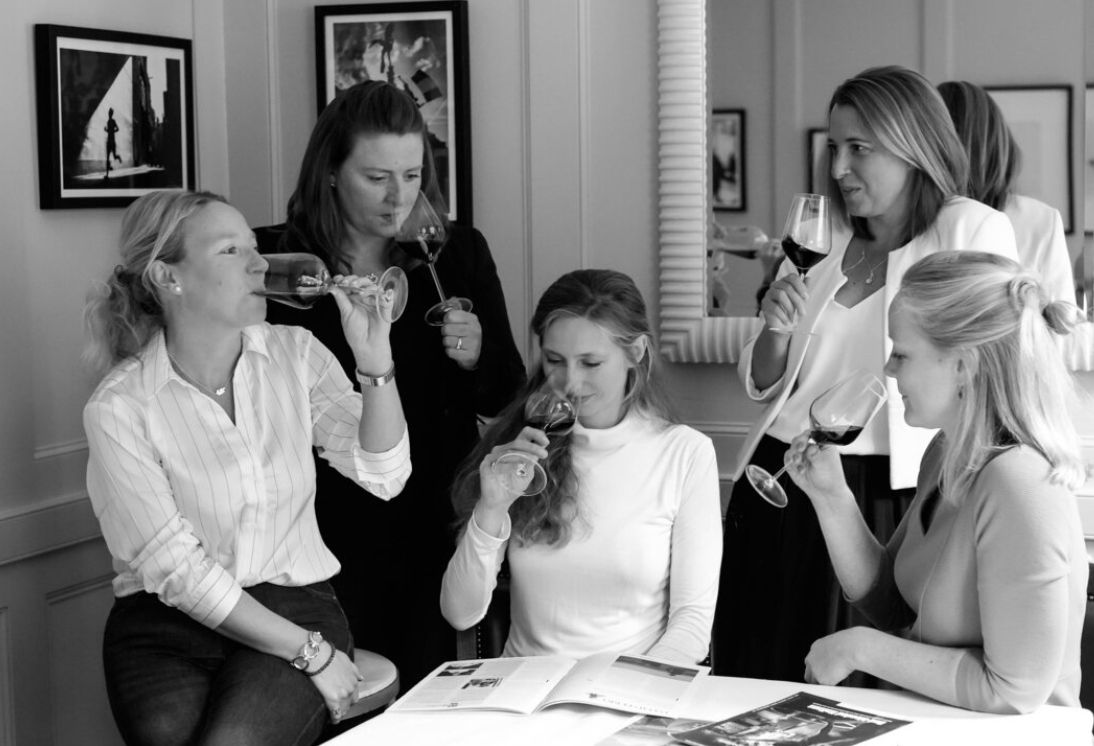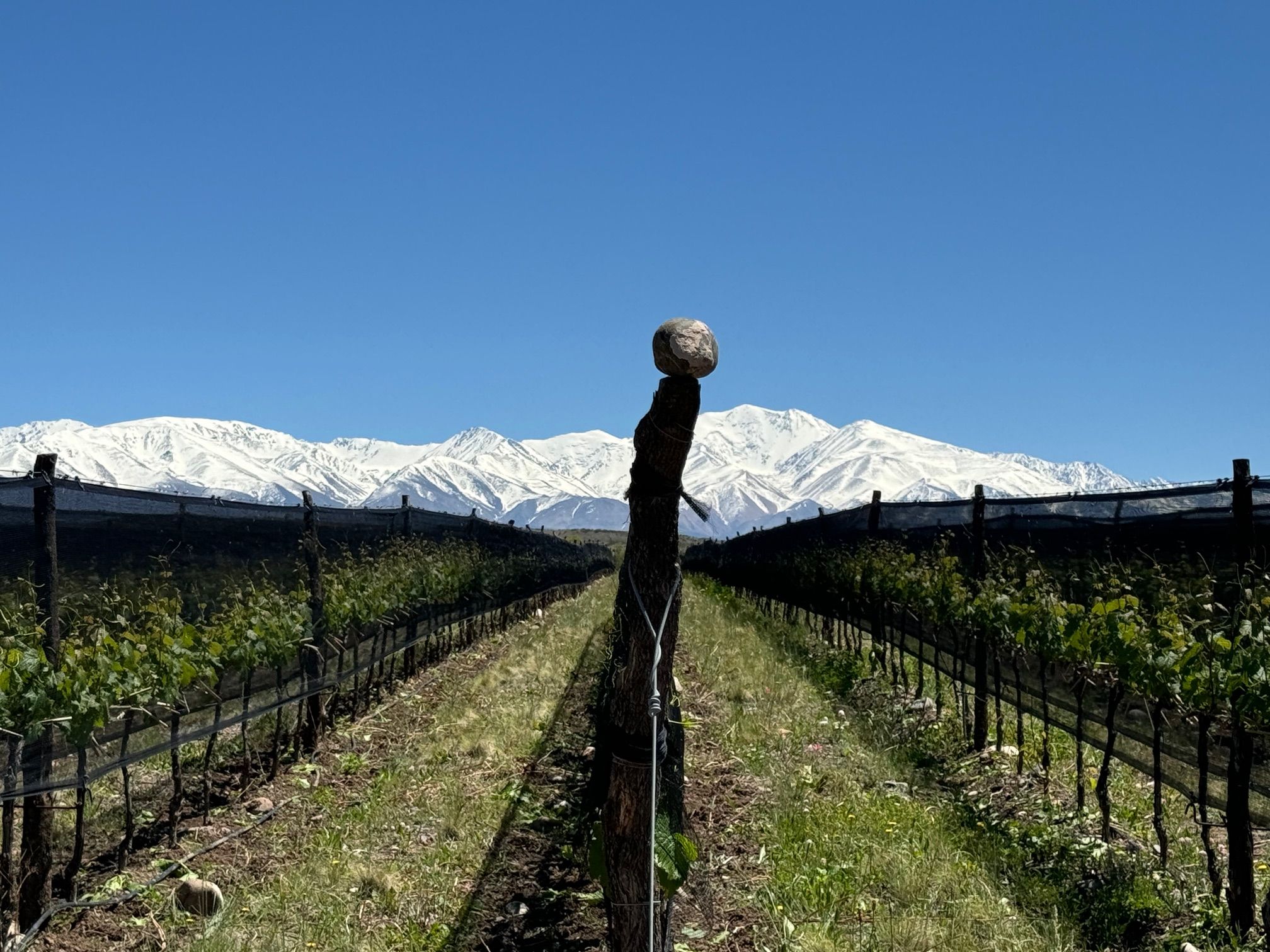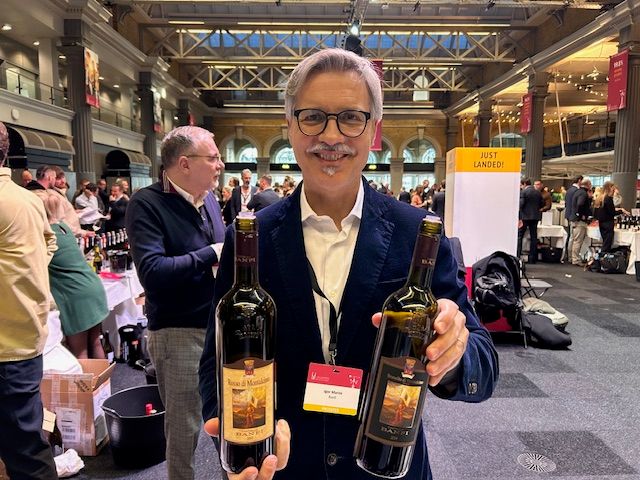Consolidation of both the on-trade and the suppliers that serve it is inevitable because of Covid-19, warns Hallgarten & Novum Wines’ Andrew Bewes.
For full interview with Andrew Bewes click below
Andrew Bewes is always a good industry figure to talk to if you want to get a real sense of what is happening in the drinks industry. In his calm and considered way, he has the ability to be able to assess the situation we are all in, whilst at the same time take a step back and look at what lies ahead.
But he admits even he is struggling to make complete sense of what has been thrown at the drinks industry over the last three months and stresses we probably won’t really know the full consequences for some time to come.
In a nutshell he says “things are as well as can be expected”. No more than that – Bewes is also not a managing director to spin a story, which makes him doubly effective to talk to.
What’s clear, he adds, is there are likely to be more losers than winners from the whole Covid-19 situation. The challenge for business leaders like him is to make sure he, and his teams, are doing all they can now to ensure their own company can come through all this mostly in tact, but the customers they serve and so rely on.
In this wide ranging video interview Bewes talks about how the business has been able to respond to Covid-19, which parts of the company have been able to keep sales going and what it is doing to keep up the morale of 65% of the business that he has had to put on furlough.
You can watch the full video above, or pick out highlights on different themes in the edited extracts identified below.
Andrew Bewes on…
Immediate response (9 minutes)
He confirms the business went into lockdown on March 23 with all staff reverting to working from home. But “overnight” it lost 98% of its on-trade business which accounts for 75% of its turnover. “So a massive hit,” as he puts it.
As a result he has furloughed 65% of staff which, he adds, “reflects the level of overhead targeted at the on-trade” who will remain on furlough until the end of June. After which there will be the opportunity to bring people back as and when demand comes back from the on-trade (27.48 minutes).
On furlough (10.15 minutes)
Whist he praises the government for moving swiftly and giving companies the relief and support of the furlough system, it does not make it any easier for the staff involved, the majority of whom are so keen to continue to contribute, but are unable to do so.
So as well as focus its efforts on what it can do to make money and sell wine, part of that focus has also been on the staff on furlough, taking steps to try and keep them as involved as much as possible with weekly Zoom meetings and quizzes.
The new flexi-furlough system from July is particularly well timed, says Bewes (11.15 minutes), in that it will allow it to bring back staff in pace with how quickly the on-trade can come back when it is given the green light to do so. It also removes the “cliff edge” that businesses were faced with what to do with their furlough staff.
Bewes also confirms Hallgarten has been topping up the 80% furlough payments to 100% and that although furlough is covering around a third of its pay roll it is having to “take quite a hit” each month to cover the rest (13.11 minutes).
Strong retail sales (11.25 minutes)
Bewes was able to look back on what has been a strong retail performance both with the major multiples, but particularly across the independent merchants sector where Hallgarten has always looked to have close relationships – which have gone up a notch or two over the last couple of months. But, he stresses, whatever gains it has made on the retail side have not been enough to make up for the losses from the lost on-trade sales.
On-trade recovery (12.35 minutes)
So much of the sector’s future rests on how quickly, safely and successfully the on-trade can come back, and Hallgarten is no different, say Bewes. For even if July 4 is the date that restaurants, bars and pubs can open again it is unclear how many will do, particularly with the two metre, or even one metre, guidelines in place. “We really do have to wait and see,” he says.
It is, though, doing what it can in terms of “modelling” potential scenarios around the on-trade recovery and making plans for each of those. “Is there going to be a Christmas?” he asks.
Then there is also the big “fear” both professionally and personally about the danger of a second wave, he adds (14 minutes).
It’s a topic Bewes returns to later on in our interview when he stresses how important the four to six week period will be when restaurants do start to re-open – potentially from July 4 – as that is when they will be needing immediate help with lists, menus and deliveries (27 minutes).
It’s also a harsh reality for suppliers is that once restaurants do come back with their new menus they are unlikely to want to change them any time soon – and there is unlikely to be the usual re-ordering process that goes in the autumn in time for Christmas lists. “That really depends on how we come back.”
Changing wine lists (15.46 minutes)
Bewes says it is also having to factor in the growing evidence and feedback from the on-trade that it will be looking for smaller, focused and more targeted wine lists when restaurants and bars do re-open, to complement what will also be tighter food menus too. It will, therefore, he added, be looking to offer different menu designs and do what it can to help around that.
He will also be “counselling against” simply stripping wine lists back to the bare bones of the most popular grape varieties (20.10 minutes). Ideally, he adds, there needs to be a balance between accessible and more ambitious wines, as the chances are it will be the more adventurous wine lovers who will be itching to eat and drink out again.
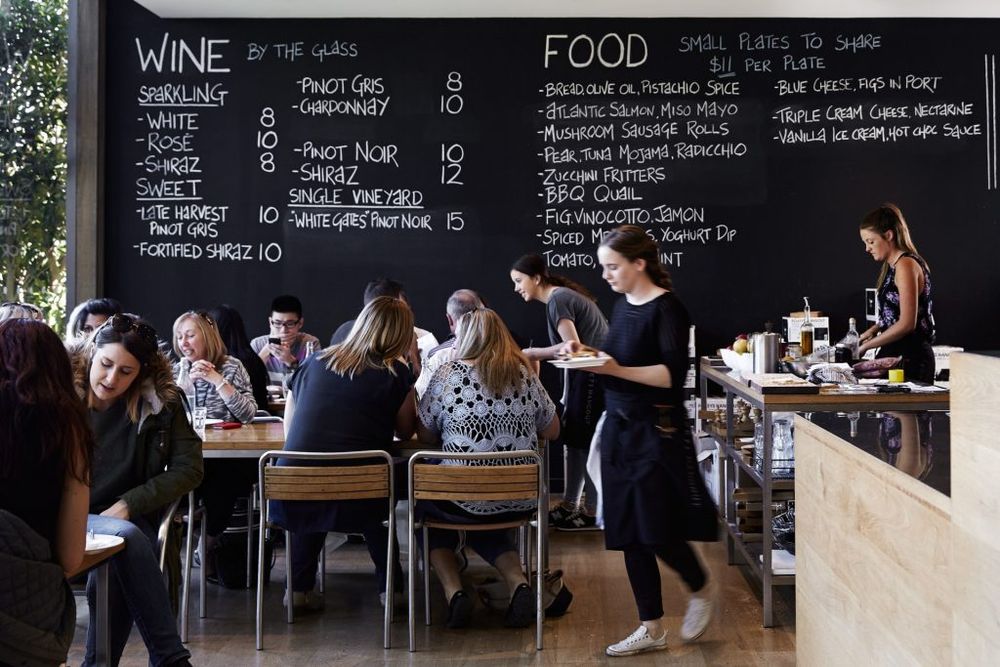
We can expect to see much smaller wine lists and food menus when restaurants return, says Bewes
“Maybe this is an opportunity to reduce the number of entry level wines and have a little ladder going up allowing people to experiment and spend a bit more money,” he explains. Particularly in restaurants above casual dining level where the drinking out “experience” will be just as important as before (21.25 minutes).
At least, he says, it is now getting “increasing amount of feedback” from bigger operators about how they are likely to return and what help they will need from their suppliers in order to do so (16.16 minutes).
He was also encouraged by what he describes as “mature” conversations taking place with its customers – with up to 90% either paying their outstanding bills, or putting place payment plans to do so. “They realise just how devastating this is not just for them, but for their suppliers too.” (17 minutes).
Opportunity for independents
The public has “crossed something of a rubicon” in terms of buying wine online during lockdown, says Bewes (22.50 minutes), which has also been good news for independent wine merchants.
Encouragingly its sales to independents have mostly been between £10 to £20 retail (23.35 minutes) with a strong pick up for more left field wines, in particular, Greece during this time.
Future business strategy (28.50 minutes)
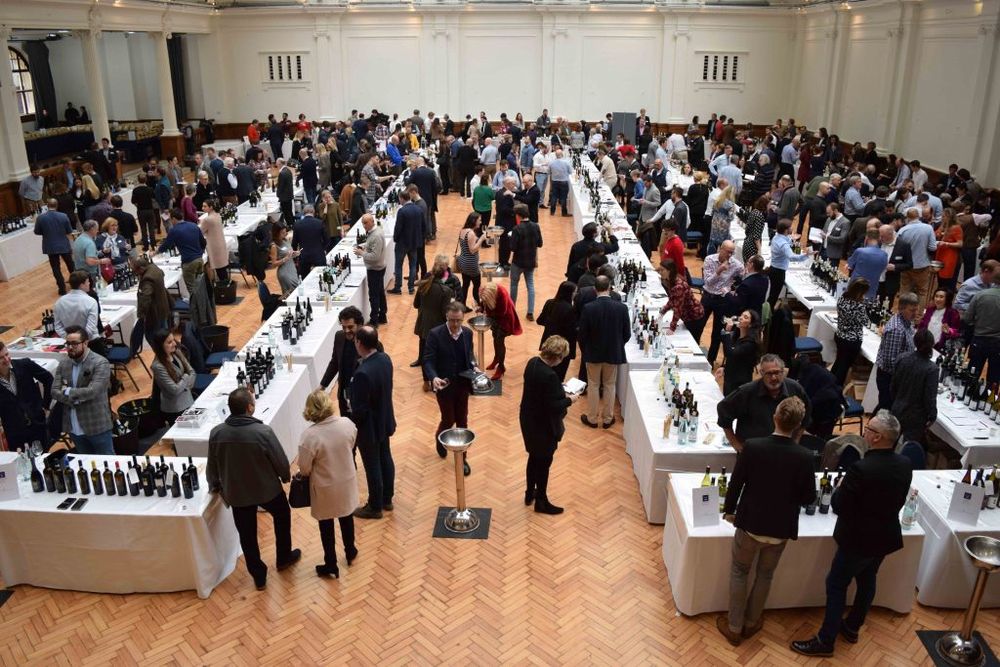
Hallgarten will not be looking to dramatically change its business model due to Covid-19, but does see the opportunity to build retail sales and forge even closer ties with independent wine merchants
The key question facing a business leader, that has 75% of its turnover in the on-trade in a pandemic when it has lost all those sales, is do you continue as you are in the future, or as has this been a major warning that you need to have a more balanced trading strategy?
Bewes, though, is quite sure it does not need to be pulling the rug from under its feet and that he has complete confidence that “the on-trade will come back – we have it in our DNA”. In fact he sees the restaurant sector going back to where it was before – albeit with the natural “shake-up” that will largely come from the amount of over supply there was in the sector anyway.
But in terms of Hallgarten’s strategy he does not look to have a set percentage spilt across on and off-trades, other than looking to increase the retail side of the company.
What he does foresee is restaurants looking to have “more resilience” in their own structures, and to work with suppliers they can be assured are going to be there for the long term (30.40 minutes).
They are also likely to increase their delivery offer, which, in turn, throws a challenge to suppliers to be able to help them do that with effective drink solutions as well as a food offer (30.55 minutes). “That’s something we have been thinking about quite deeply.”
Case study: working with Ascot race course (36.30 minutes)
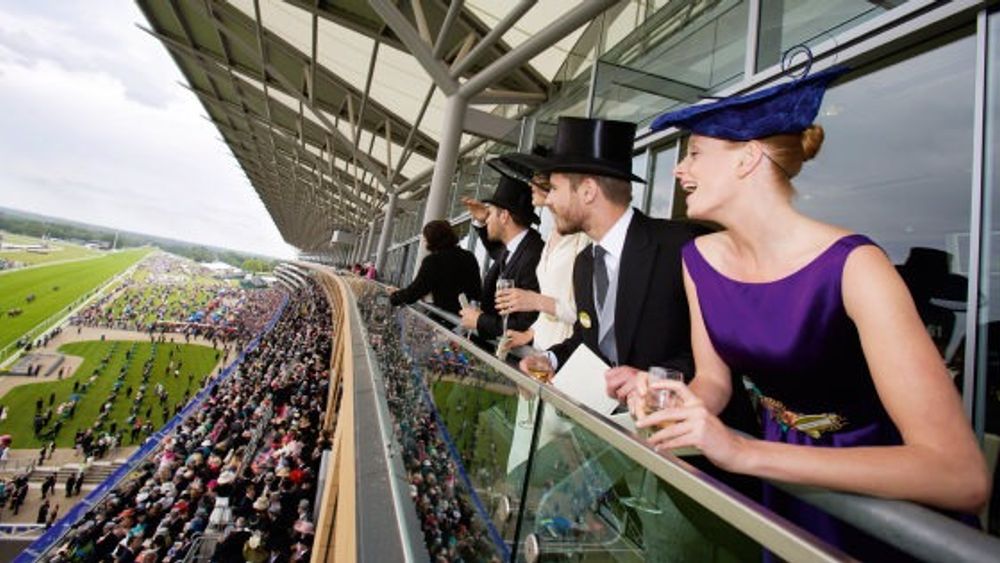
Hallgarten has also been able to secure good business during lockdown and has set up an online wine club for Ascot Racecourse as part of a new contract to be its main wine supplier
The pace at which business has been able to be done during lockdown has been a real positive, says Bewes. A good case in point, he adds, is how it has been able to set up from scratch a new wine website and club for Ascot race course that will be open to its members and customers in time for Royal Ascot.
It was a certainly a challenge for its IT team, but the focus of lockdown has meant everyone has been able to pull together and make it happen in a three weeks a project that would usually take months to pull together.
It now gives Hallgarten a wine club and e-commerce model it has created that it can offer to our potential customers.
Trade supplier vs direct to consumer (32.10 minutes)
Bewes was also keen to stress that it is firmly committed to being a trade only supplier and that it is not interested in any DTC model. “Our long term position is we are a trade supplier. Our business is to support our trade customers and not to compete with them,” he says.
He does, though, respect its competitors that have gone the DTC route during lockdown, and will be interested to see what they do when restaurants come back and they have developed a new revenue stream and changed their own business model.
But notes that in the main the on-trade appears “relaxed” about those moves, the resistance has come from the independent sector who see it as encroaching on their business models (33.40 minutes).
“Each to their own,” adds Bewes. “We all have to be able to look at our business model and make sure it stacks up for the majority of the people you are aiming to sell to.”
Where he does see Hallgarten playing a part is where it can help a trade partner and be thee drinks partner that helps their DTC model be successful.
Role as a business leader in a crisis (43.10 seconds)
With so many challenges to face all at the same time, the last three months must have placed enormous pressure on the likes of Andrew Bewes trying to lead a major national corporate business through the crisis. So what has it been like for him personally?
“It’s bloody hard work,” is how he initially responds. Before explaining the responsibility he feels for the livelihoods of all the staff in his business, but also the trade as a whole.
“We have all spent our life building something and seeing it disintegrate overnight is soul destroying,” he says.
But it’s also his role to ensure he can help as much as he can to keep “spirits up” and to re-assure the team”. “We are not out of the woods yet, but my priority has been to make sure my team are safe and secure, and paid from day one…but it has been a testing time and it is exhausting.”
He also says it has been a unique time for him in that he has been able to get involved in so many more cross department meetings than he usually can. “I feel closer to my team than I have for a long time, which is great.”
Hallgarten’s future (46 minutes)
He is also open up enough to admit by saying it’s “not out of the woods” he means financially. “We need to get back to making some money if we are going to secure the long term future. So that weighs heavily.”
But he also says how inspired he has been in lockdown by how “engaged” its core restaurant customers have been in terms of trying to settle bills or make plans to do so in the future. “It’s enlightening and also re-assuring just how much we have all pulled together.”
Equally Hallgarten has been working with its own producers on payment plans and agreements and looking where it can to prioritise payments to smaller producers who may not have the financial support of being able to rely on stronger export sales into other markets.
Where will the industry be in 12 months time? (49.10 minutes)
Here Bewes rests on his optimistic nature and says that assuming we have a vaccine by then and the on-trade is pretty much back to normal then he is confident that Hallgarten “can recover to 2019 levels and beyond”.
Yes, he expects there to be that consolidation across both the supplier and restaurant sectors, and that as a distributor there needs to be more of an “eye on the balance” between their on and off-trade splits.
There is a great opportunity to work even closer with independent wine merchants and help them to really maximise this change in consumer spending.
As a business it will need to be even more selective about how commercially robust any customer they work with is, and equally he expects restaurants to be more demanding and exacting of them.
But crucially, he concludes, Hallgarten entered this situation in a “position of immense strength” after 2019 – with no borrowings, which it has maintained during the crisis – and whilst this may be the first year it does not return a profit, he is confident that its well placed to “come bouncing back next year”.
